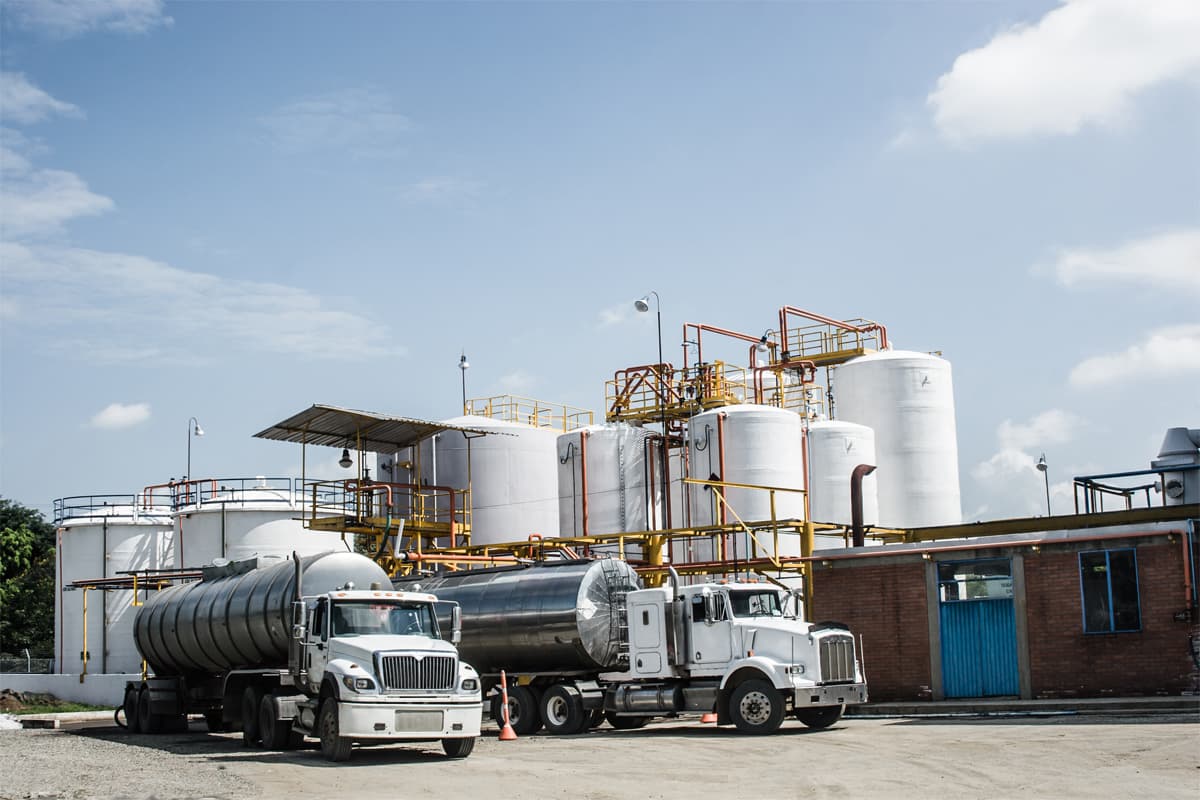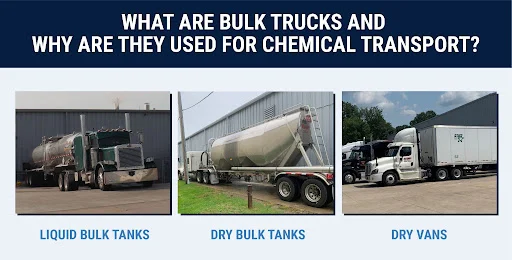.jpg)
Royal Chemical’s Technology Transfer Package: What’s Included and Why It Matters
Your blends and formulations are competitive differentiators. That’s why it’s important to select a chemical contract manufacturer who not only understands your product but has the industry know-how to quickly integrate your proprietary technology into their operations. Before you take the next step, are you aware of all the information your chemical manufacturing partner requires to get started? The onboarding process is a crucial point in the engagement. Without a seamless hand-off, you risk costly delays, quality issues and potential safety or security risks.
For instance, are you ready to communicate or provide any of the following information?
- Nondisclosure agreements (NDAs)
- Safety data sheets (SDSs)
- Packaging instructions
- Quality control requirements/verification
- Certification requirements
- Your formulation details
At Royal Chemical, we recommend customers utilize a Technology Transfer Package (TPP) to make the onboarding process with new customers more seamless and ensure a more efficient contract manufacturing process.
What is a Technology Transfer Package?
A TTP is more than a description and guide to the contract manufacturing process. It also covers the specific arrangements with your contract manufacturer. It’s the primary agreement and guide to the services provided. As such, it outlines everyone’s responsibility in the process. As the product developer, the formulation is your intellectual property (IP) and your most valuable asset. So, when you’re ready to move from development to production, you need a TTP that establishes the requirements for quality, consistency, lead times, packaging and IP protection.
What should be included in a Technology Transfer Package?
Royal Chemical’s TTP is a five-step process that includes a checklist of requirements for the initial agreement/quotation, pre-activation, pre-production, production and shipping as well as invoicing and pricing.
What’s involved in the five-step process?
Step 1: Quotation
This is the initial engagement with the contract manufacturer where you will receive a thorough checklist that includes the following requested documents and information:
- NDA: Typically, either you or Royal Chemical will provide this document, and both parties should sign it prior to the engagement.
- SDS: This document provides information related to worker occupational health and safety concerning the use of chemicals and substances. Each finished product must be reviewed. Read Authoring Your Safety Data Sheet (SDS): What It Includes And How To Create One for more information on what should be included in your Safety Data Sheet (SDS).
- Raw material SDS: Any unique material used in the manufacturing process must have an SDS on file at Royal Chemical.
- Formulation: This is the bill of materials that Royal Chemical will review for every finished product based on the individual CAS Registry Number, which is a unique identifier for each substance. This helps to avoid potential confusion with varying trade names for a chemical.
- Mix instructions: Royal Chemical will review the mixing process for each finished product.
- Packaging details: Here, you will specify whether to package the product in bulk containers, totes, drums, pails, cases or pouches.
- Net weights: What is the required fill weight?
- Quality control specifications: Contract manufacturers must follow your quality standards, so this is where you indicate all required tests and specifications.
- Tests required: Details of testing equipment or methods should be provided.
- Certifications: Do you have EPA, Kosher, Halal, NSF, GMP or UL certification requirements?
- Label artwork: Your labels are essential for branding purposes. We request a PDF of your label, which must meet the Globally Harmonized System of classification and labeling of chemicals and must coincide with the SDS.
- Customer-supplied items: If you have customer-supplied items, we will provide a form for dock appointments.
- Approved vendors: If you have preferred vendors, we will request the vendor names and contact information.
- Location to produce and ship: If there are multiple locations, specify which location will need to be quoted to optimize freight savings.
- Order volumes: What are your typical order patterns?
- Annual volumes: What is your expected total annual volume?
- Lead times for orders: Lead times are dependent on inbound raw materials.
- Bill and hold: We provide the form, then you place the purchase order or provide the minimum/maximum quantities for production and inventory management.
- Warehousing: If it’s a bill and hold arrangement, you provide a purchase order for items to be stocked or minimum/maximum reorder volume expectations (60 days movement; ask your account manager for more details).
- Forecasting: This is an ongoing process based on details you provide about the current market demand.
Step 2: Pre-Activation
Prior to the formal customer engagement, Royal Chemical has an established process to ensure everything is in order and quality standards are adhered to before entering the production phase. This includes:
- New customer setup details: Royal Chemical explains all details to make sure every option has been documented cradle to grave.
- Purchase order submitted: When you place an order, it signals that Royal Chemical should produce a lab sample and prepare your order for production.
- Lab sample: Royal Chemical obtains all the raw material needed to make a lab sample and qualify.
- Lab sample approved: We approve the sample by either confirming internally that it meets specifications or can send it to you for approval.
- Sign-off sent: We will send all of the expected details in the sign-off.
- Sign-off returned: The customer will return the sign-off before Royal Chemical orders the batch tickets, raw materials or packaging.
- Product activated: This includes the approval of all documents and samples.
Step 3: Pre-Production
Once you have completed all of the administrative tasks, we can begin preparing for the production phase. This includes:
- Create batch tickets: This notifies procurement of which items must be ordered for production.
- Ship-to destination details: You provide as much detail as possible about your end customer, including their address and preferred delivery times.
- Raw material ordering: Purchasing orders the raw materials and lets customer service know if lead times must be extended.
- Order packaging: If purchasing needs to order special packaging, they will advise on updated lead times if extended, and customer service will communicate these details.
Step 4: Production and Shipping
Production and shipping is a standardized process that Royal Chemical follows to deliver your product on time and per your specifications. It includes the following steps:
- All raw materials and packaging (including labels) on property: Nothing can get scheduled without all raw materials and packaging on the property.
- Schedule: Items are scheduled in priority of when they are received. Lead times will be communicated with customers based upon when raw materials and packaging are available.
- Staging: We stage all items in advance of the production date to verify everything is available.
- Confirm production: Production notifies customer service of the production date and then customer service relays that information to you.
- Shipping: Customer service will give an estimated ship date and then confirm the ship date.
Step 5 - Invoicing and Pricing
The post-production process is seamless and straightforward. It includes the following steps:
- Invoice at shipment: Customer service will dispatch and invoice the shipment.
- Payment: Payment must meet agreed-upon terms.
- Price list: The price list is provided on a monthly or quarterly basis.
- Send all new requests for quotes: You will send all new requests for quotes to your account manager to start this process.
Ensure Consistent Quality in Chemical Formulations by Partnering With an Experienced Contract Manufacturer
Royal Chemical works with customers every step of the way. This includes paying close attention to formulary considerations, including ingredients, procurement, consistency and safe handling techniques, as well as the equipment and logistics required throughout the process. Even post-manufacturing processes like packaging, labeling and transportation can result in unintended changes to the product.
After the TTP is complete, clients continue to be well-informed of the manufacturing process, from initial lab sample reports to receiving a confirmed manufacturing date and product shipment confirmation.
Having a professional TTP process is vital to ensuring consistent quality in chemical formulations.
Contact us to learn more about how Royal Chemical manages the TTP, from initial production to product delivery, what you're responsible for when creating the TTP and how we help you stay informed throughout the process.
Talk to an Expert
Streamline Your Chemical Manufacturing Process
Royal Chemical’s expertise in blending, packaging and shipping can save you time, reduce costs and deliver consistent results.















